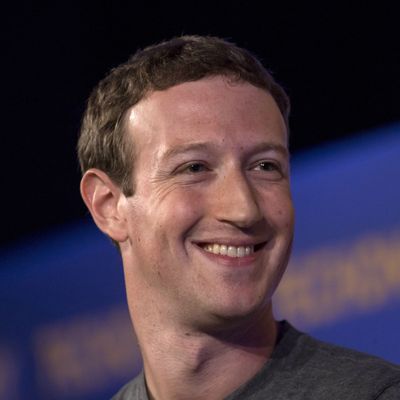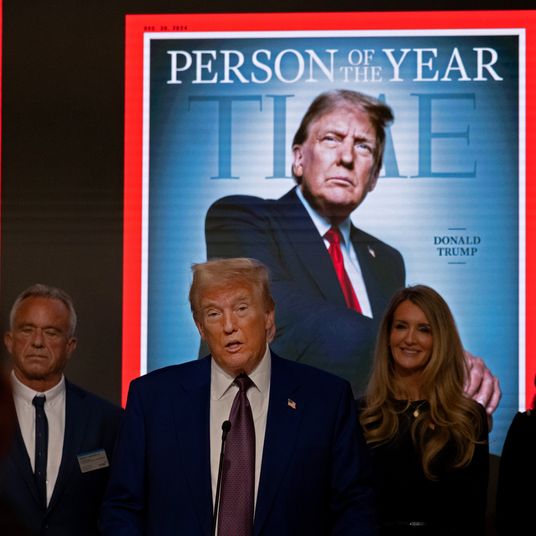
As the saying goes, “New year, new me.” For Mark Zuckerberg, that means a new yearly project. Last year, he starred in a production of “Where in the U.S. Is Mark Zuckerberg?”; this year, he will spend his time learning about his own company and the technology industry. That’s a pretty good goal for the CEO of a tech company that counts more than 2 billion people among its users and spent the last two years embroiled in controversy about how the service exacerbates societal division and distorts reality!
He writes:
The world feels anxious and divided, and Facebook has a lot of work to do — whether it’s protecting our community from abuse and hate, defending against interference by nation states, or making sure that time spent on Facebook is time well spent.
My personal challenge for 2018 is to focus on fixing these important issues. We won’t prevent all mistakes or abuse, but we currently make too many errors enforcing our policies and preventing misuse of our tools. If we’re successful this year then we’ll end 2018 on a much better trajectory.
Better late than never, I guess? One of the primary factors in considering Facebook’s power is in understanding the current anxiety over centralization on the internet — the collection of internet activity in the hands of a few online destinations and services rather than many disparate ones. Facebook is a key part of this, dominating social network in the same way that Google dominates search and Amazon dominates shopping.
Again, the Zuck:
[O]ne of the most interesting questions in technology right now is about centralization vs decentralization. A lot of us got into technology because we believe it can be a decentralizing force that puts more power in people’s hands. (The first four words of Facebook’s mission have always been “give people the power.”) Back in the 1990s and 2000s, most people believed technology would be a decentralizing force.
But today, many people have lost faith in that promise. With the rise of a small number of big tech companies — and governments using technology to watch their citizens — many people now believe technology only centralizes power rather than decentralizes it.
There are many reasons for centralization. Social networks like Facebook, for example, derive much of their appeal from so-called “network effects.” The appeal of Facebook is that all of your friends are on Facebook! That’s a natural effect that results in centralization. And there are plenty of benefits and conveniences to letting Facebook or Google or Amazon handle almost all of the functions you need the internet for. The looming question is whether that convenience is worth it (in my opinion: nope).
Network effects are only one cause of centralization, though. There are many deliberate choices that Facebook has made over the years to keep users boxed into its platform (and to keep its platform central to the commercial and social life of the internet in general). It spent billions on popular apps like WhatsApp and Instagram, bringing them under the Facebook umbrella. It has duplicated the functionality of competing apps like Snapchat, prioritized its own video-hosting service over YouTube, and started offering crowdfunding services that have become increasingly popular over the last few years. It has created a News Feed that is now designed to keep users within the Facebook app and on the Facebook site. Its designers have crafted an API system that makes it very easy to feed data into Facebook and very difficult to extract from that same system. It has put roadblocks in place to discourage users from exporting their data and leaving the service, and it refuses to reveal how its systems work and what types of data powers them.
In America, this centralization is mostly just inconvenient. In other countries, it’s arguably devastating. Facebook has been cited as a reason for the spread of misinformation fomenting ethnic cleansing in Myanmar. A test in smaller countries that moved publishers out of the central News Feed and into a different part of the site caused their traffic to drop off of a cliff. It has struck deals with mobile data providers to zero-rate Facebook services, making them preferable to other services that might count against a customer’s data-usage cap. Facebook is testing drones that can stay in the air for days at a time, providing internet access. In many places, Facebook is, in practice, the entire internet, and soon it might be the company actually providing internet access. Zuckerberg and his staff have not proved themselves up to the task of handling these responsibilities.
Decentralized technologies, such as a standard like the SMTP email protocol or the blockchain ledger system, “come with the risk of being harder to control,” Zuckerberg says. “I’m interested to go deeper and study the positive and negative aspects of these technologies, and how best to use them in our services.”
A great first step in fixing Facebook, and reckoning with its centralized power, would be to open up the service to academic researchers (ones that, I guess I should add, don’t work for and aren’t funded by Facebook). Less partial people should be able to study how the system works and how that in turn affects the world outside of Facebook. The company tried to address this a little in a recent piece on how social media affects mood, but it can do a lot better on this front.
The implicit problem with Zuckerberg’s interest in decentralization, even as a concept, is that it requires major tech players like Facebook — powered by proprietary innovations kept under lock and key — to surrender some advantage. For Zuckerberg to even slightly embrace decentralization would be to endorse internet users going somewhere online besides Facebook. Shareholders aren’t going to like that.





























